Dear readers,
KfW Group reported another successful year in promotional terms and continued to experience very brisk demand for its financing products in 2016. The volume of promotional commitments rose to a total of EUR 81 billion (2015: EUR 79.3 billion, +2%).
With a commitment volume of EUR 55.1 billion (2015: EUR 50.5 billion, +9%), domestic promotional business provided clear impetus for German economic growth. The increase was largely due to the high demand for promotional loans in housing construction; businesses also made very good use of KfW’s promotional programmes.
Commitments in the international business are stable at EUR 24.9 billion (2015: EUR 27.9 billion). It was an excellent year for financing and promotional activities in the field of development cooperation which came in at EUR 8.8 billion (2015: EUR 7.7 billion). The volume of financing offered by KfW IPEX-Bank as a specialist for export and project finance normalised again at EUR 16.1 billion following the previous year’s exceptional figure.
Promotion of environmental and climate protection projects was once again a key focus of our work (EUR 35 billion, or 44% of all commitments).
Between 2012 and 2016, KfW issued commitments with a total volume of EUR 103 billion for projects in connection with the energy transition, in line with the KfW Energy Turnaround Action Plan, thus making an important contribution towards achieving the German Federal Government's environmental and climate goals. Promotion was provided for investments in energy-efficient construction and refurbishment, energy efficiency measures for businesses and municipalities, renewable energy and technological innovations in the area of climate protection.
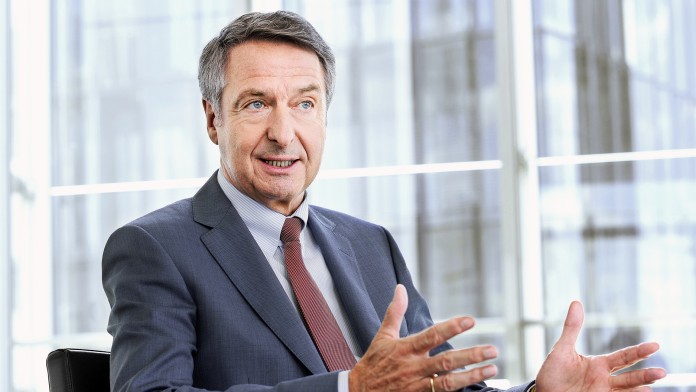
KfW is undergoing a digital transformation process, and sees these new technologies as an opportunity. In doing so, we are meeting our customers’ growing demand for the streamlined and digital processing of their promotional loans. We also want to do our bit to promote Germany’s digital transformation.
Dr Ulrich Schröder (Chief Executive Officer)
The digitalisation of KfW’s business continues, with new approaches for promotion in Germany and other countries. In Germany, the digital on-lending platform “BDO 2.0” is taking advantage of the opportunities offered by digitalisation. Almost all housing sector promotional products are now processed digitally between KfW and its financing partners via this platform. The first commercial promotional loan was also granted via BDO in the summer of 2016. Since December 2016, private clients have been able to apply for the investment grants offered by KfW via the KfW grants portal, and receive their funding commitment immediately. Digitalisation also serves as a catalyst for modernisation and development in the promotion of developing countries and emerging economies.
KfW is helping the German Federal Government, states and municipalities with direct crisis management as well as sustainable integration in connection with the refugee issue. The “refugee accommodation” special facility that was launched in September 2015 was already exhausted four months later, in January 2016. Accommodation for up to 150,000 people was created in 700 municipalities. KfW has been assisting the German federal states with promotional programmes for affordable housing since April 2016, thus making a valuable contribution towards long-term integration.
Internationally, the KfW Development Bank business area currently has almost 100 ongoing projects relating to refugees in 27 different countries with an overall volume of EUR 2 billion. A total of around EUR 575 million in new commitments went to 30 projects that are providing direct support for towns and villages taking in refugees in partner countries.
The independent non-profit KfW Stiftung (foundation) also provided support to refugees. Under the patronage of the then Federal Minister for Economic Affairs and Energy Sigmar Gabriel and in collaboration with Social Impact GmbH, KfW Stiftung expanded its stipend programme “Ankommer. Perspektive Deutschland” in 2016, through which it supports projects and initiatives that give refugees access to education, training and jobs, and thus also the chance of becoming active members of German society and the economy.
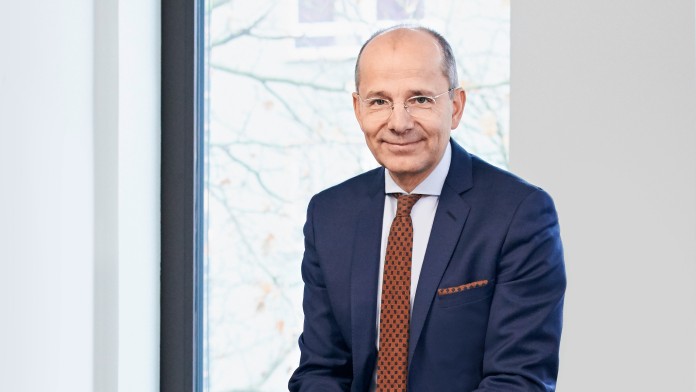
This year the share of KfW’s total promotional business volume that was committed for environmental and climate financing was the highest in its history. In this way, KfW is continuing in its role as one of largest financiers of environmental and climate protection measures in Germany and around the world.
Dr Günther Bräunig
Details on the business sectors’ promotional activities
Domestic promotional business:
The volume of new business in the Mittelstandsbank business sector last year amounted to EUR 21.4 billion. This put it around EUR 1 billion above the figure recorded for the previous year (2015: EUR 20.4 billion).
With a volume of EUR 10.7 billion (2015: EUR 9.3 billion), the environment and energy priority sector achieved strong growth in 2016. This was largely due to the energy efficiency programme, which was restructured and improved in 2015 and through which a total of EUR 5.2 billion (2015: EUR 3.8 billion) was handed out already in the first year following its restructuring. Since May 2016, the promotion of systems aimed at avoiding or using exhaust heat has tapped into additional potential for reducing energy consumption. At EUR 4.7 billion, the high volume achieved in the previous year by KfW’s renewable energies programme (EUR 4.5 billion) was also exceeded again.
The priority area of start-ups and general corporate finance held steady year-on-year with a volume of EUR 10.1 billion (2015: EUR 10.3 billion), as did start-up finance, which was already the subject of strong demand in the previous year (2016: EUR 3.6 billion, 2015: EUR 3.7 billion).
Commitments of EUR 0.6 billion in the innovation financing business were down slightly on the previous year‘s level (2015: EUR 0.8 billion). The issue of digitalisation is an important factor with respect to the future competitiveness and innovation of the German SME sector. KfW is currently refining its activities to promote innovation in partnership with the German Federal Ministry for Economic Affairs and Energy (“BMWi”) in order to create targeted incentives for digitalisation projects. The financing of innovation already received a significant boost in 2016 thanks to the successful implementation of the new equity finance strategy. Following the good start of the ERP Venture Capital Fund Investments, the programme is now being expanded to include venture debt funds in order to provide even better support to fast-growing tech companies. The VC Fund set up by KfW and the BMWi in March 2016 has also been very well received by the market. In total, this new form of equity finance will enable KfW to leverage up to EUR 2.5 billion in private capital for innovative start-ups over the next few years.
The volume of new business for the Kommunalbank and Privatkundenbank/ Kreditinstitute business sector amounted to EUR 33.7 billion (2015: EUR 30.1 billion).
Growth was very strong in the housing priority area in particular. Commitments reached a volume of EUR 20.8 billion (2015: EUR 16.5 billion), with more than EUR 11 billion disbursed in the Energy-efficient Construction Programme alone (2015: EUR 7 billion). The new construction sector and low interest rates provided a strong and lasting boost to demand.
Commitments with a volume of EUR 4.1 billion were issued in the infrastructure finance segment (2015: EUR 5 billion). As was already the case in the previous year, the special facility for refugee accommodation was once again a major factor at just under EUR 450 million (2015: EUR 1 billion). The amount of EUR 1.5 billion was quickly used up in connection with the acute measures implemented. What was also particularly encouraging was that promotion for municipal environmental and climate protection measures doubled from EUR 378 million in 2015 to EUR 745 million.
The promotional business volume in the education and social development priority area at around EUR 2.3 billion was once again at a good level (2015: EUR 2.6 billion). At EUR 4.4 billion, the contract volume in the global funding of promotional institutions of the federal states was also down slightly on the previous year (2015: EUR 4.7 billion). Individual financing for banks increased its volume of promotion to EUR 2.1 billion (2015: EUR 1.3 billion), above all thanks to the issue of global loans for lease finance.
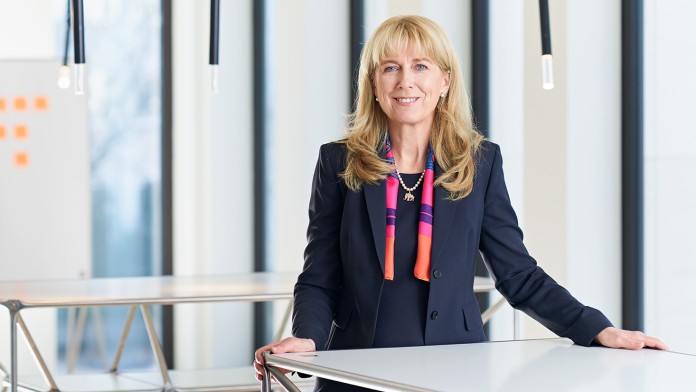
KfW also provided important impetus to the German economy in 2016. Record commitment levels were achieved in funding energy efficiency for homes and businesses alike, in start-up finance and in municipalities’ high demand for investment loans. KfW promotion is having an impact on the general public, businesses and municipalities.
Dr Ingrid Hengster
International financing:
Commitments in the international business are stable at EUR 24.9 billion (2015: EUR 27.9 billion).
In the Export and project finance business sector, which is handled by KfW IPEX-Bank, new commitments of EUR 16.1 billion were achieved (2015: EUR 20.2 billion). This means that the volume of commitments stabilised again at the normal level for past years after spiking in the previous year due to exceptional effects. The largest contributions stemmed from the Power, Renewables and Water (EUR 3.1 billion), Maritime Industries (EUR 2.4 billion) and Financial Institutions and Trade Finance (EUR 2.1 billion) sector departments, often working as part of a syndicate with other banks. Financing in the Power, Renewables and Water department mainly relates to on-shore and off-shore wind farms as well as highly efficient combined-cycle power plants.
Business area KfW Development Bank increased its commitments substantially; around EUR 7.3 billion in financing was provided to developing countries and emerging economies over the past year on behalf of the German Federal Government (2015: EUR 6.7 billion), 66% of which was destined for climate and environmental protection projects (2015: 60%). This is a record figure primarily based on financing environmentally-friendly energy generation and supply. Nearly one third of all new commitments went to development projects in Africa.
DEG, a subsidiary of KfW, achieved the highest volume of new business in its almost 55-year history. It committed around EUR 1.6 billion in 2016 for investments by private companies in developing countries and emerging economies, which is 46% more than in the previous year (2015: EUR 1.1 billion). Financing for SMEs was once again a focus, with more than half of all new commitments (EUR 871 million) going to SMEs. DEG committed EUR 253 million, almost twice as much as it did in the previous year, for German companies, which are one of its strategic priorities. Investments in sub-Saharan Africa accounted for one fifth of all new commitments (EUR 316 million).
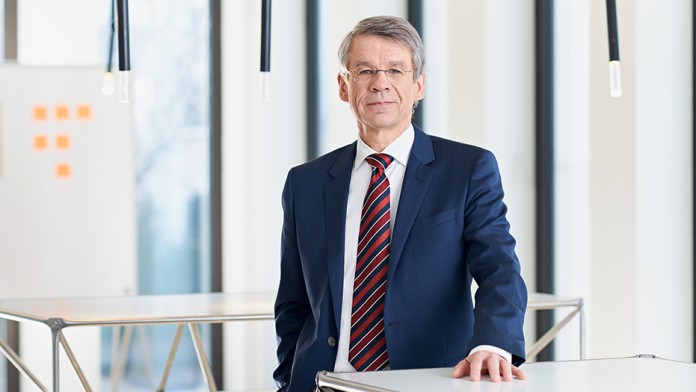
Development financing recorded the largest promotional business volume in KfW’s history in 2016. The focal points were environmentally-friendly energy generation and supply, and financing for SMEs in developing countries and emerging economies. Our export and project finance also supported domestic industry with a further significant contribution to financing.
Dr Norbert Kloppenburg
Financial markets
In 2016 the Financial markets business sector contributed a total of EUR 1.3 billion (2015: EUR 1.1 billion) to promote the SME sector and finance climate and environmental protection by investing in securitisation transactions and green bonds.’
While around EUR 1 billion was invested in securitisation transactions in 2016, a volume of EUR 1.3 billion is planned for 2017. KfW launched the European securitisation initiative “ENSI” together with the European Investment Fund (EIF) and national promotional institutions with the aim of improving the financial opportunities available to SMEs. KfW has invested in six different transactions to date as part of this initiative, and in so doing supported Europe’s SME sector. The cooperation is to be intensified in 2017.
KfW worked to protect the climate through its green bond portfolio in 2016, buying green bonds with a volume of EUR 300 million. This means that KfW held green bonds with a total volume of around EUR 580 million at the end of 2016. In 2017, KfW is planning to invest an additional amount of around EUR 300 million in green bonds. The target volume for this portfolio is EUR 1 billion.
To fund its promotional business, KfW in 2016 raised funds amounting to EUR 72.8 billion in the international capital markets. To this end, it issued 206 bonds in 15 different currencies. The core currencies were still the euro and the US dollar, which together accounted for a share of 83%. The US dollar was the currency with the greatest share of the total volume of funding (47%, EUR 34.3 billion), as it was in 2015 (45%, EUR 28 billion). As part of its green bond activities, KfW issued Green Bonds in four different currencies in 2016 (euro, pound sterling, US dollar, Swedish krona), with an equivalent value of EUR 2.8 billion.
KfW expects its funding requirements for 2017 to be slightly higher (approx. EUR 75 billion) than in the previous year. With its established issue strategy and an explicit and direct guarantee from the German Federal Government, KfW considers itself to be in an ideal position to achieve its planned volume of funding.
Operating result in financial year 2016
With a consolidated profit of EUR 2 billion, KfW’s earnings position developed far better than expected in 2016, primarily due to the positive valuation result. At EUR 1.9 billion, the Operating result before valuation (before promotional activity) exceeded forecasts, despite a slight decline compared to the previous year (2015: EUR 2.1 billion), primarily due to continued favourable funding opportunities for KfW.
The overall positive net valuation result was below the extraordinarily high level of the previous year, but still much better than expected. This was due in part to the increased but still moderate net charges from risk provisions for lending business and in part to the net gains from hedge accounting and other financial instruments at fair value through profit or loss.
The funding expenses KfW granted in the Domestic promotional business, at the expense of its own earnings, decreased to EUR 230 million in 2016 (2015: EUR 345 million) due to the sustained low interest environment.
Consolidated total assets rose by EUR 4 billion to EUR 507 billion in 2016. This increase was largely a result of the EUR 7.1 billion increase in net loan receivables to EUR 376.3 billion and the rise in liquidity held (+ EUR 4.6 billion).
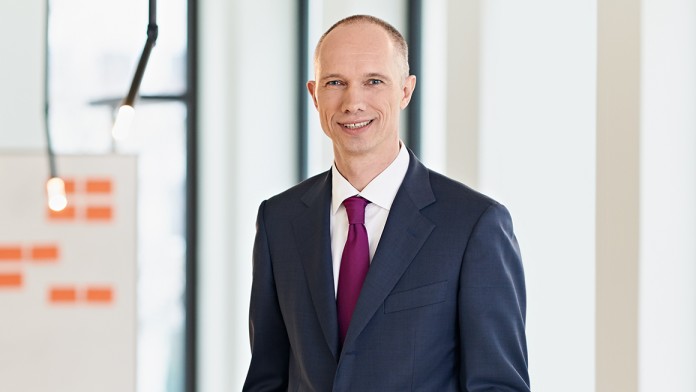
KfW’s earnings position was encouragingly stable again in 2016, and exceeded our expectations. Reinvesting our profit for the year increases KfW’s equity and enables us to tackle new challenges that arise in the promotional areas.
Bernd Loewen
Modernisation of KfW
KfW launched a modernisation programme to ensure its long-term financial support. This includes not only digitalisation but also implementing supervisory requirements resolved by the Federal Cabinet in 2013. The KfW Regulation has been applicable since 2016. It is aimed since at applying key banking supervision standards as set out by the German Banking Act (Kreditwesengesetz – “KWG”) and the European Capital Requirements Regulation (CRR) to KfW. The German Federal Financial Supervisory Authority (BaFin) supervises compliance with these standards in consultation with Deutsche Bundesbank. Compliance with banking supervision standards is an aspect of KfW’s professionalisation. This has no effect on KfW’s regulatory status; it remains exempt from the Capital Requirements Directive IV (CRD IV) and is not considered a credit institution within the meaning of the German Banking Act (Kreditwesengesetz – “KWG”), given its special characteristics.
KfW is responding to the continuous increase in security and regulatory requirements for banks by comprehensively modernising its IT system. The main focal areas of the IT modernisation programme are addressed through major projects and other measures as planned. These incorporate new supervisory requirements and findings. All milestones set for implementation of the IT modernisation programme were met in 2016.
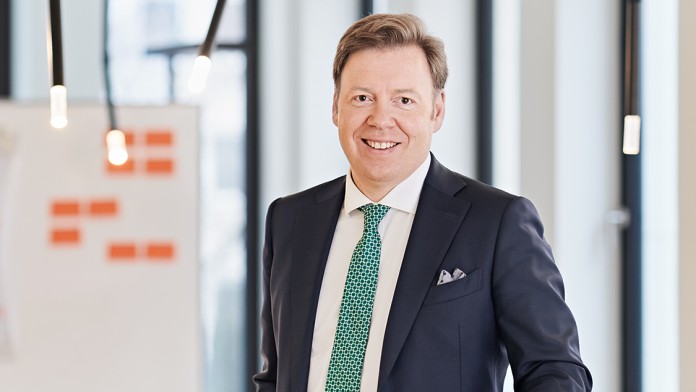
The regulatory requirements under the KfW Regulation have been applicable since the beginning of 2016. The solid development of our risk and capital figures in 2016 creates an even sounder basis for successfully meeting both current and future regulatory requirements, whilst also enabling KfW to continue performing its legal mandate.
Dr Stefan Peiss
KfW continued to demonstrate in 2016 the important role it assumes for environmental protection, business and society as a modern, efficient and customeroriented promotional bank. It has made sustainable promotion our guiding principle and helps to ensure that the challenges of our time can be mastered successfully, while strictly adhering to the subsidiarity principle. KfW takes responsibility as a reliable partner – in Germany, Europe and around the world. This strength is also thanks above all to the bank’s staff, whom we would like to thank very much for their passionate commitment.
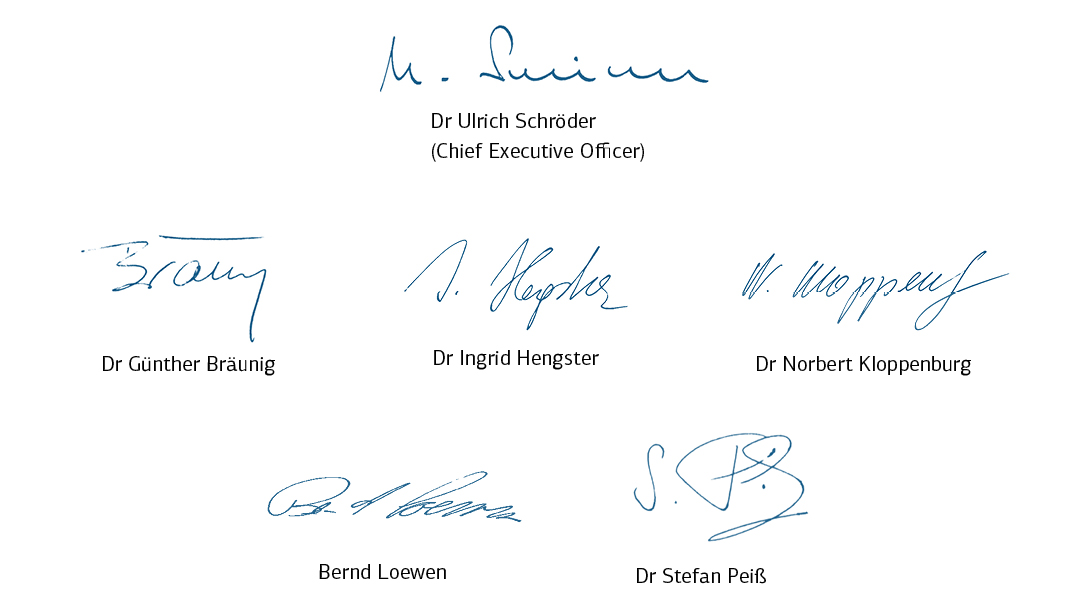
Legal notice:
The information contained in this online Annual Report 2016 is based on KfW’s Financial Report 2016, which you can download here here. Should this online Annual Report 2016, despite the great care taken in preparation of its content, contain any contradictions or errors compared to the Financial Report, the KfW Financial Report 2016 takes priority.

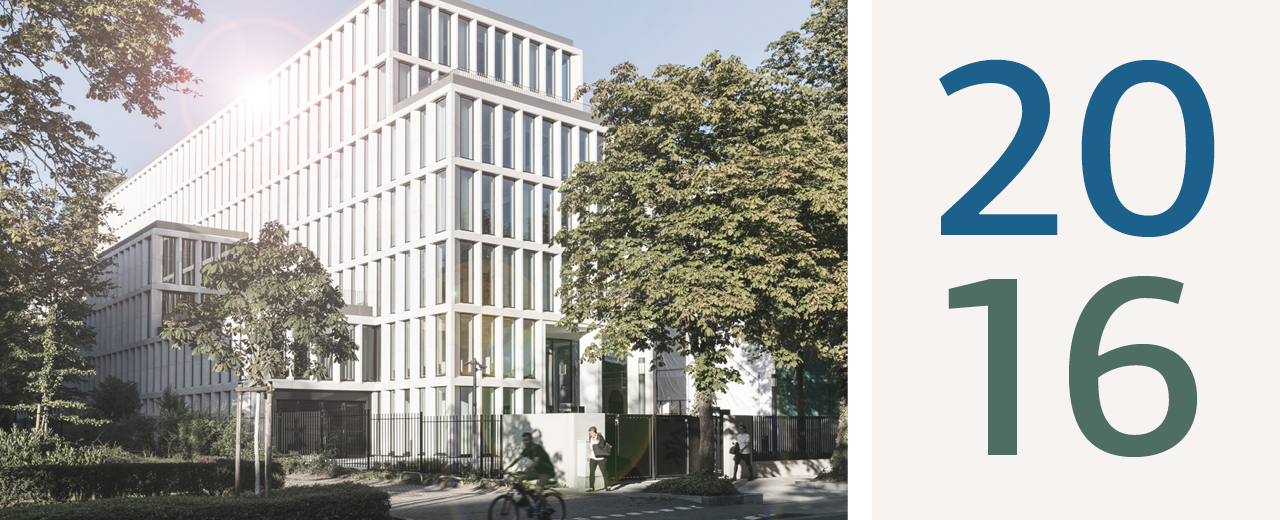
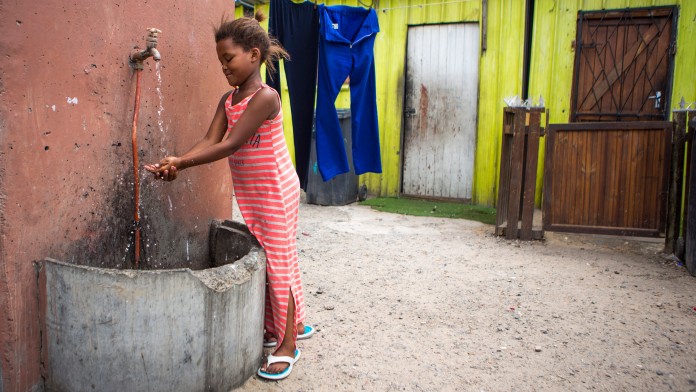
Share page
To share the content of this page with your network, click on one of the icons below.
Note on data protection: When you share content, your personal data is transferred to the selected network.
Data protection
Alternatively, you can also copy the short link: kfw.de/s/enkBbvro
Copy link Link copied